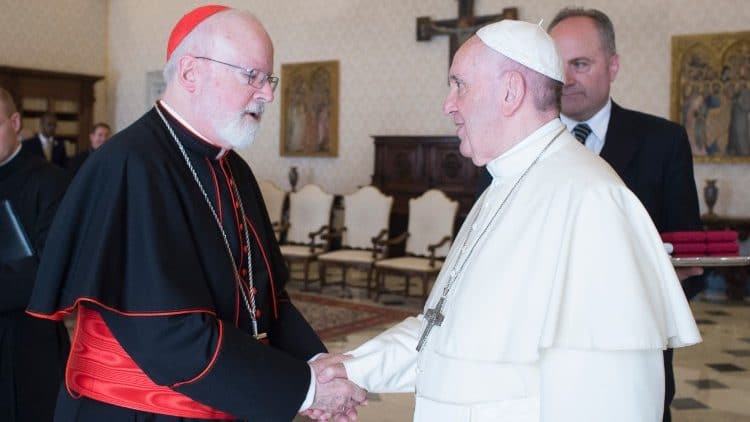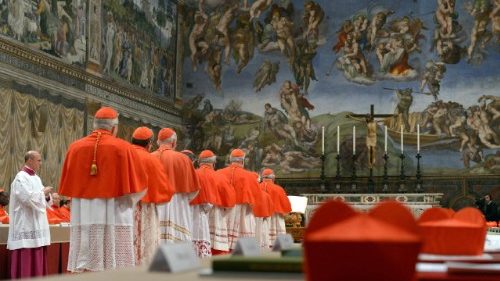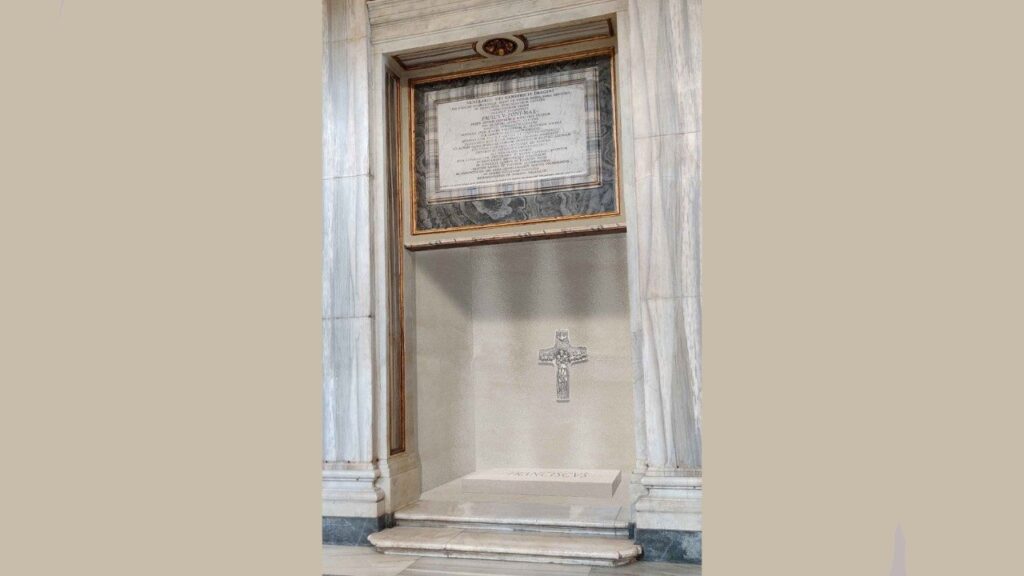Cardinal O’Malley on Global Scale of Abuse
'We Cannot Repair What we do not Recognize'

Cardinal Sean O’Malley today remarked on the global scale of abuse, stressing that the problem must be recognized and addressed.
“We cannot repair what we do not recognize,” said the President of the Pontifical Commission for the Protection of Minors. “We cannot restore a broken trust if we do not address the heart of the matter. This requires honest investigation, independent inquiry, and informed action.”
Cardinal O’Malley’s comments came on the European Day on the Protection of Children against Sexual Exploitation and Sexual Abuse, November 18th, in a message to Prof Ernesto Caffo, Tutela Minorum member and President of Italy’s childline Telefono Azzurro who hosted an International Symposium titled: The right to trust. The challenge of securing the relationship of children and adolescents with trusted adults.
“We know that Child Sex Abuse is a global, human problem,” the Cardinal said. “The World Health Organization that one in five women and one in thirteen men report experiencing sexual abuse before their 18th birthday; and that at least sixty percent of child sexual abuse victims/survivors never disclose their abuse.”
Cardinal O’Malley pointed out that the statistics for the Catholic Church also are troubling. He pointed out the recent French report that 216,000 children were abused in the Church from 1950 to 2020. A study in Australia showed that 40 percent of the child abuse there had occurred in the Church.
“These are astounding statistics. But we cannot allow our reaction to them to obscure their purpose: To assess the measures taken by the Church to treat this scourge, and to make all useful recommendations for the transformation of a failed system based on a quantitative and qualitative level.”
Below is the text of his message:
“On behalf of the Pontifical Commission for the Protection of Minors, I send my greetings to Prof. Ernesto Caffo, President of Telefono Azzurro, and the honored guests and participants who have gathered today in person and online to mark the European Day on the Protection of Children against Sexual Exploitation and Sexual Abuse, which this year focuses on “Making the circle of trust truly safe for children”.
Since its inception in 2015, the Council of Europe initiative has provided a forum to bring civil society, and governments together to focus and better align vital resources and heighten awareness of the problem of child sexual exploitation and abuse (CSEA).
We know that Child Sex Abuse is a global, human problem. The World Health Organization that one in five women and one in thirteen men report experiencing sexual abuse before their 18th birthday; and that at least sixty percent of child sexual abuse victims/survivors never disclose their abuse.
The most recent data that we have received on the scope of Child Sexual Abuse in the Catholic Church, is no less grim. In France, the Independent Commission on Sexual Abuse in the Catholic Church (CIASE) estimated 216 000 children suffered sexual abuse in the Church in the period from 1950 to 2020. In Australia, 40 percent of the child sexual abuse that took place in the period under review of the Royal Commission of Inquiry occurred in an area related to the Catholic Church.
These are astounding statistics. But we cannot allow our reaction to them to obscure their purpose: To assess the measures taken by the Church to treat this scourge, and to make all useful recommendations for the transformation of a failed system based on a quantitative and qualitative level.
We cannot repair what we do not recognize. We cannot restore a broken trust if we do not address the heart of the matter. This requires honest investigation, independent inquiry, and informed action.
As a Church, we must be open to learning from the advances of civil society and academia in terms of scientific models of research for a more informed approach to our prevention strategies and protection policies, on the ground and online.
Learning from each other, we can become a Church and a society that puts the protection of children among the highest priorities. This requires investment in creating relationships of trust and cross-institutional support.
The Holy Father and our Commission are convinced that the victims and survivors of child sexual abuse hold the key to helping us implement meaningful and effective policies and procedures. In his letter to the People of God in 2018, Pope Francis noted “as time goes on, we have come to know the pain of many of the victims” and that the wounds they bear “never go away.”
This November 18th, the Church in Italy has instituted the 1st National Day of Prayer for Victims and Survivors. The Day was established by Pope Francis through the commitment of the Pontifical Commission for the Protection of Minors as a public and visible recognition of victims of clerical sexual abuse and to promote awareness among all the baptized faithful, and non-believers as desired by the Holy Father in his Letter to the People of God (2018)3.
In solidarity with the Holy Father’s initiative, on November 18th in Baltimore, I will be walking in silent communion of prayer with adult survivors of child sexual abuse, their advocates, brother bishops, faith leaders of many denominations, and representatives of civil society.
As the sun rises over the city waterfront, we will gather as a global collective in recognition of our commitment – religions and civil society – to walk with survivors on a lifelong journey of healing for us all.
With the assurance of my continued prayers,
Card. Seán O’ Malley OFM Cap.
President
Related

Il Conclave inizierà il 7 maggio
Exaudi Redazione
28 Aprile, 2025
1 min

Il cardinale Parolin alla messa di Novendales: “La misericordia ci conduce al cuore della fede”
Exaudi Redazione
27 Aprile, 2025
7 min

Migliaia di fedeli salutano Papa Francesco in Piazza San Pietro
Exaudi Redazione
26 Aprile, 2025
2 min

La tomba di Francesco: un’eredità di umiltà e vicinanza
Exaudi Redazione
25 Aprile, 2025
4 min
 (EN)
(EN)
 (ES)
(ES)
 (IT)
(IT)

